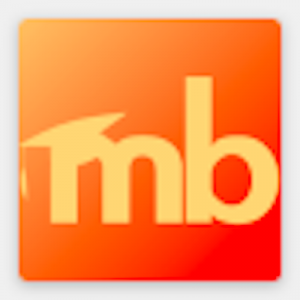MoodleBites from HRDNZ Moodle Partner since 2006
MoodleBites for Course Designers
(Most content is also suitable for earlier versions)
What do others say having taken this course...
"Thank you for a very thorough and interesting course and all your facilitation on this. See you again soon!" (Anonymous feedback)
"Excellent units. A real value for money MoodleBites. I just loved the whole course." (Anonymous feedback)
"I've learned a lot and I enjoyed what I learned." (Anonymous feedback)
The MoodleBites for Course Designers is 8 weeks in duration and is perfect for teachers and course creators who know all the basics of Moodle, but want to take their course design skills to a higher level, and create awesome Moodle courses. Each week contains approximately 2-4 hours work, although this varies depending on your experience with Moodle and how much extension work you wish to complete
Designed for existing Moodle users and people who have completed MoodleBites for Teachers, this course is NOT suitable for new Moodle users. If you are new to Moodle, or in your first year of using it, please refer to the MoodleBites for Teachers course here
- Each week is facilitated by Stuart Mealor, Managing Director of HRDNZ (Moodle Partner) and Moodle certification manager, and co-facilitated by at least one other MCCC and experienced international Moodler
Fee
The fee for MoodleBites for Course Designers is USD $399 per person.At this time we are able to offer a discount to a special rate of USD $299.
Places are limited - so book early. If you wish to translate this value to your local currency please visit: http://www.xe.com/ All invoices outside of New Zealand are in US Dollars (USD$), Euro invoices available by special request.You can register for this course using the "Register Now" link on the Front Page.
Dates
The MoodleBites for Course Designer course runs just 3 times each year starting on the following dates;
- 1st February
- 1st June
- 1st October
Each course includes:
- HD (high-definition) multimedia tutorial movies
- Actively supported discussion Forums
- Practical teaching examples
- FAQ's and glossaries
- Individual practice exercises
- Optional group activities
- Tips and tricks
- Selected relevant links
- Quizzes and self-test questions
- Awesome articles relating to e-learning design
- Recommended further reading
- "Certificate of Completion" showing course was completed with HRDNZ (Moodle Partner)
- Automated Open Badge awarded

![]()
MoodleBites for Course Designers is unique for a number of reasons:
- It has a focus on extending basic Moodle teachers skills, building awesome courses, and crafting engaging professional courses.
- The course development team is international and MoodleBites for Course Designers has been written to be accessible for speakers of English as a second or other language.
- Designed to run well even over slow internet connections and on older computers.
- Mobile friendly course design.
Course content outline
- Week 1, Advanced course management
Even When creating a Moodle course the designer must often have the understanding of how the course will be actively managed. How do we make like easier when administering and teaching courses?- Groups and Groupings
- Roles, Permissions, and Capabilities
- Reports, Logs and some extras...
- Understanding and using meta-courses effectively
- Import, Reset, Backup, Restore
- Week 2, SCORM
The SCORM standard (Shareable Content Object Reference Model) is a collection of standards and specifications for web based e-learning. Essential a SCORM package, or 'learning object' can be used in any SCORM compliant course management system, such as Moodle. But what exactly is a SCORM object?- Standards
- SCORM creation applications
- Working examples
- Best-practice of using SCORM within Moodle
- Week 3, Audio and Podcasts in Moodle
The Apple iPod can be seen as being the device that created an explosion in podcasting. Whilst the technologies behind podcasting are a combination of RSS, popular compressed audio formats. There are a number of possibly ways to create podcast and podcast like activities in Moodle, and this course explores these. This week also explores the wider use of audio within Moodle courses.
- Audio formats
- Open Source audio applications
- Podcasting courses and activities
- Audio in Moodle resources
- Audio in Moodle activities
- Week 4, Advanced Graphics
Few of us are trained graphic designers. However there is little doubt that effectively locating, creating, editing, and using graphics can lift an ordinary course into a visually stimulating and engaging course. This week will help you do just that.
- Open Source graphics applications
- Graphics processing and management
- Creatively using images in Moodle
- Understanding Themes in Moodle
- Week 5, Advanced Database, Lessons and HTML
The Database and Lesson activities are two of the most powerful activities in Moodle, but they are often avoided by teachers. This week explores the advanced possibilities offered by these two sophisticated modules and the HTML Block capabilities.
-
- Advanced Databases
- Advanced Lessons
- Techniques for using the powerful HTML Block
- Week 6, Accessibility and Usability
This course explores how Moodle courses can be designed with regard to best-practices and accessibility considered. Areas such as fonts, colours, speed, closed captioning, and browsers are discussed, with reference to research and techniques that can be applied to your own course design.
- Defining accessibility and usability
- Moodle specifics
- Course design best practice
- Week 7, Web 2.0, social-networking, and collaboration
This course explores how Moodle can be used with other applications to collaborate more effectively.- Integrating Facebook, Twitter, Linkedin, etc.
- Web 2.0 and collaborative techniques
- E-portfolios
- Video-conferencing with Moodle: Big Blue Button, WiZiQ, Zoom, etc.
- Google Docs and Google Code
- Other integrations
- Week 8, Extending Moodle through non-standard modules and plug-ins
This is an interesting overlap between an area relevant to both Teachers and Administrators. Although Teachers cannot add modules, surely it is the educators that should often decide which options to make available?
- How add-ins and non-standard modules work
- Using add-in Blocks, Activity Modules, Reports and Filters, Questions
- Other add-ins
- Considering MoodleBites for Administrators
- Becoming an active member of the international Moodle community
- Using the Moodle Tracker
* This outline is subject to change as Moodle changes and we update the content.
